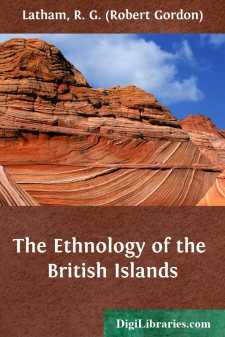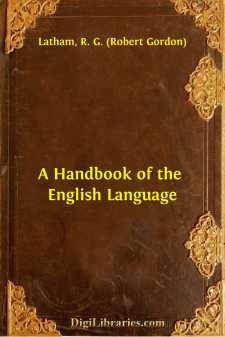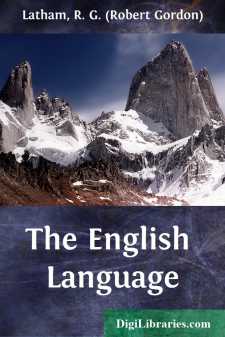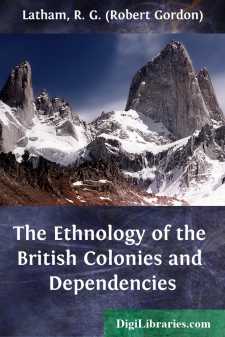Categories
- Antiques & Collectibles 13
- Architecture 36
- Art 48
- Bibles 22
- Biography & Autobiography 813
- Body, Mind & Spirit 142
- Business & Economics 28
- Children's Books 17
- Children's Fiction 14
- Computers 4
- Cooking 94
- Crafts & Hobbies 4
- Drama 346
- Education 46
- Family & Relationships 57
- Fiction 11829
- Games 19
- Gardening 17
- Health & Fitness 34
- History 1377
- House & Home 1
- Humor 147
- Juvenile Fiction 1873
- Juvenile Nonfiction 202
- Language Arts & Disciplines 88
- Law 16
- Literary Collections 686
- Literary Criticism 179
- Mathematics 13
- Medical 41
- Music 40
- Nature 179
- Non-Classifiable 1768
- Performing Arts 7
- Periodicals 1453
- Philosophy 64
- Photography 2
- Poetry 896
- Political Science 203
- Psychology 42
- Reference 154
- Religion 513
- Science 126
- Self-Help 84
- Social Science 81
- Sports & Recreation 34
- Study Aids 3
- Technology & Engineering 59
- Transportation 23
- Travel 463
- True Crime 29
The Ethnology of the British Islands
Description:
Excerpt
CHAPTER I.
PRELIMINARY REMARKS.—PRESENT POPULATIONS OF THE BRITISH ISLES.—ROMANS, ETC.—PRE-HISTORIC PERIOD.—THE IRISH ELK.—HOW FAR CONTEMPORANEOUS WITH MAN.—STONE PERIOD.—MODES OF SEPULTURE.—THE PHYSICAL CONDITION OF THE SOIL—ITS FAUNA.—SKULLS OF THE STONE PERIOD.—THE BRONZE PERIOD.—GOLD ORNAMENTS.—ALLOYS AND CASTINGS.—HOW FAR NATIVE OR FOREIGN.—EFFECT OF THE INTRODUCTION OF METALS.—DWELLINGS.
The ethnologist, who passes from the history of the varieties of the human species of the world at large, to the details of some special family, tribe, or nation, is in the position of the naturalist who rises from such a work as the Systema Naturæ, or the Règne Animal, to concentrate his attention on some special section or subsection of the sciences of Zoology and Botany. If having done this he should betake himself to some ponderous folio, bulkier than the one which he read last, but devoted to a subject so specific and[2] limited as to have scarcely found a place in the general history of organized beings, the comparison is all the closer. The subject, in its main characteristics, is the same in both cases; but the difference of the details is considerable. A topographical map on the scale of a chart of the world, a manipulation for the microscope as compared with the preparation of a wax model, are but types and illustrations of the contrast. A small field requires working after a fashion impossible for a wide farm; often with different implements, and often with different objects. A dissertation upon the Negroes of Africa, and a dissertation upon the Britons of the Welsh Principality, though both ethnological, have but few questions in common, at least in the present state of our knowledge; and out of a hundred pages devoted to each, scarcely ten would embody the same sort of facts. With the Negro, we should search amongst old travellers and modern missionaries for such exact statements as we might be fortunate enough to find respecting his geographical position, the texture of his hair, the shade of his skin, the peculiarities of his creed, the structure of his language; and well satisfied should we be if anything at once new and true fell in our way. But in the case of the Briton all this is already known to the inquirer, and can be conveyed in a few sentences to the reader. What[3] then remains? A fresh series of researches, which our very superiority of knowledge has developed; inquiries which, with an imperfectly known population, would be impossible. Who speculates to any extent upon such questions as the degrees of intermixture between the Moors and the true Negroes of Nubia? Who grapples with such a problem as the date of the occupation of New Guinea? Such and such-like points are avoided; simply because the data for working them are wanting. Yet with an area like the British Isles, they are both possible and pertinent. More than this. In such countries there must either be no ethnology at all, or it must be of the minute kind, since the primary and fundamental questions, which constitute nine-tenths of our inquiries elsewhere, are already answered....





